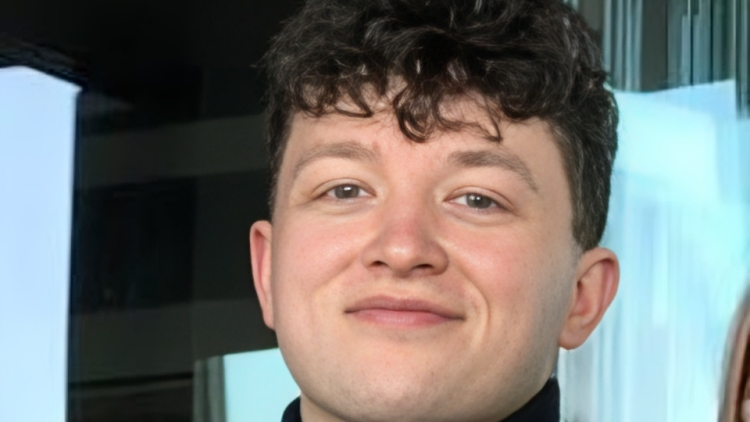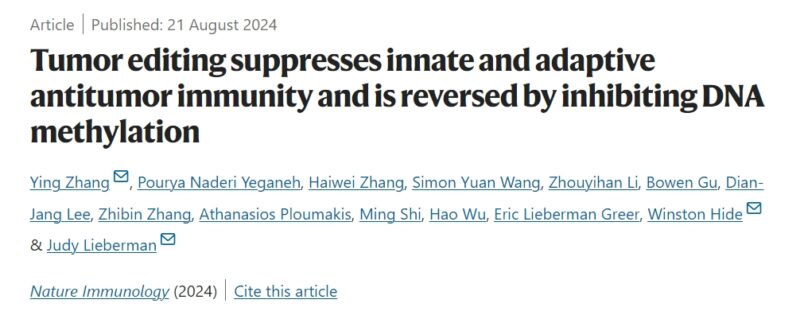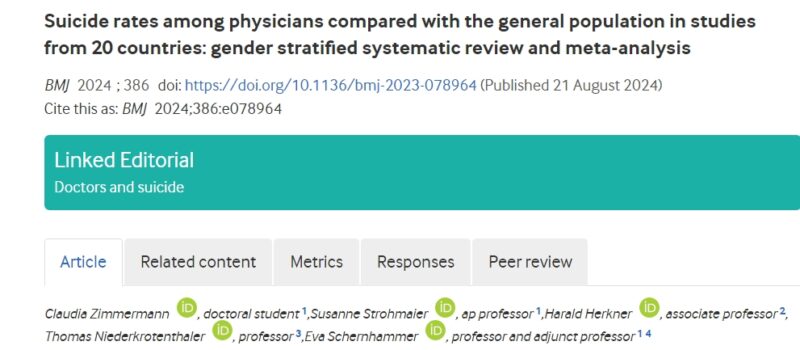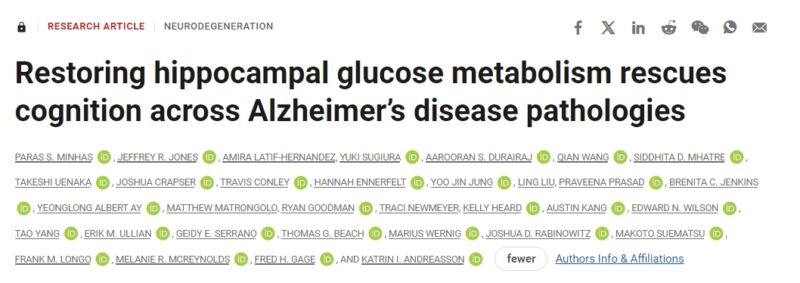Samuel Hume, Researcher at the University of Oxford, recently shared on X:
“Biggest medical discoveries of the week
1. Why do some people get bitten by mosquitoes but others don’t? It turns out that mosquitoes use three signals to pick their hosts: CO2 from breath, human odour, and the infrared radiation emitted by skin.
‘Thermal infrared directs host-seeking behaviour in Aedes aegypti mosquitoes‘
Authors: Avinash Chandel, Nicolas A. DeBeaubien, Anindya Ganguly, Geoff T. Meyerhof, Andreas A. Krumholz, Jiangqu Liu, Vincent L. Salgado and Craig Montell
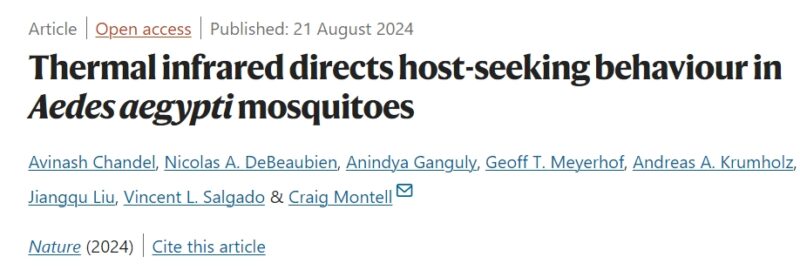
2. Early stop codons cause ~10–20% of genetic conditions A promising approach is to force the ribosome to ignore the stop codon, using a drug, to produce full-length proteins How effective this is depends on the drug, the gene, and the stop codon
‘Genome-scale quantification and prediction of pathogenic stop codon readthrough by small molecules‘
Authors: Ignasi Toledano, Fran Supek and Ben Lehner
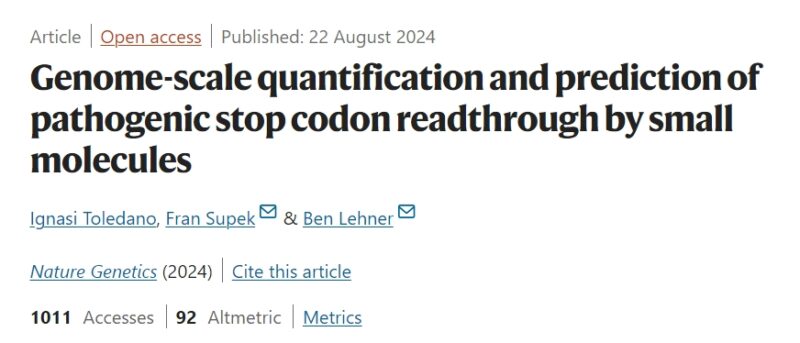
3. A new drug to treat hot flashes in menopause, which has no dedicated treatment Two randomised trials found that Elinzanetant (which alters temperature regulation in the hypothalamus) was effective to reduce the incidence and severity of hot flashes.
‘Elinzanetant for the Treatment of Vasomotor Symptoms Associated With Menopause‘
Authors:
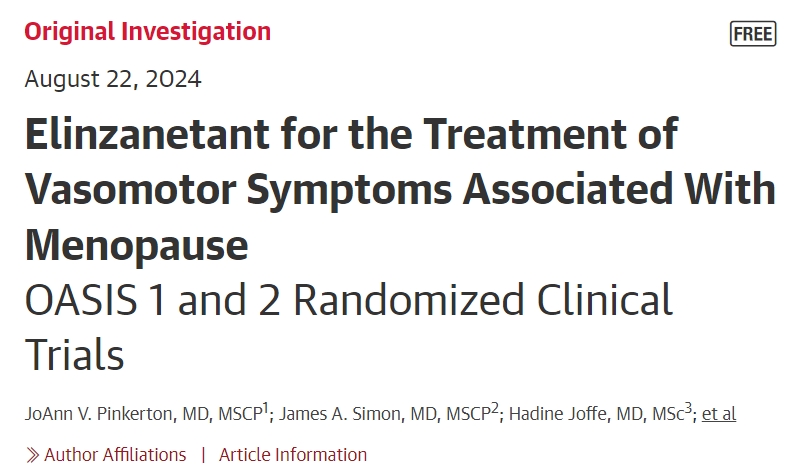
4. Another indication for Semaglutide: reducing heart attacks, strokes, and death in obese patients with heart failure This is the largest study of GLP-1 receptor agonists so far.
Authors: Prof John Deanfield, Prof Subodh Verma, Benjamin M Scirica, Prof Steven E Kahn, Scott S Emerson, Prof Donna Ryan, Prof Ildiko Lingvay, Prof Helen M Colhoun, Jorge Plutzky, Prof Mikhail N Kosiborod, Prof G Kees Hovingh, Søren Hardt-Lindberg, Ofir Frenkel, Peter E Weeke, Søren Rasmussen, Prof Assen Goudev, Prof Chim C Lang, Miguel Urina-Triana, Mikko Pietilä, A Michael Lincoff.
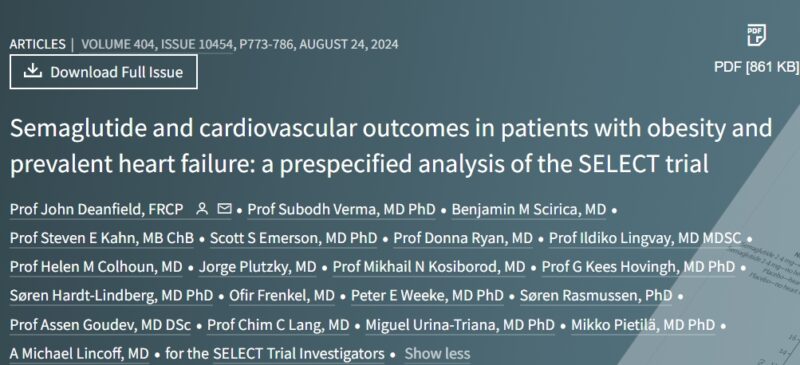
5. Discovery of a new class of antibiotics, found by mining peptides expressed by bacteria in the microbiome The top hit, Prevotellin-2, was just as potent as conventional antibiotics
‘Mining human microbiomes reveals an untapped source of peptide antibiotics‘
Authors: Marcelo D.T. Torres, Erin F. Brooks, Angela Cesaro, Hila Sberro, Matthew O. Gill, Cosmos Nicolaou, Ami S. Bhatt, Cesar de la Fuente-Nunez

6. Reducing childhood mortality in sub-Saharan Africa This randomised trial found that twice-yearly distribution of the antibiotic azithromycin, to children under 5, reduced mortality by ~15%
‘Azithromycin to Reduce Mortality — An Adaptive Cluster-Randomized Trial‘
Authors: Kieran S. O’Brien, Ahmed M. Arzika, Abdou Amza, Ramatou Maliki, Bawa Aichatou, Ismael Mamane Bello, Diallo Beidi, Nasser Galo, Naser Harouna, Alio M. Karamba, Sani Mahamadou, Moustapha Abarchi, Almou Ibrahim, Elodie Lebas, Brittany Peterson, Zijun Liu, Victoria Le, Emily Colby, Thuy Doan, Jeremy D. Keenan, Catherine E. Oldenburg, Travis C. Porco, Benjamin F. Arnold, and Thomas M. Lietman.”
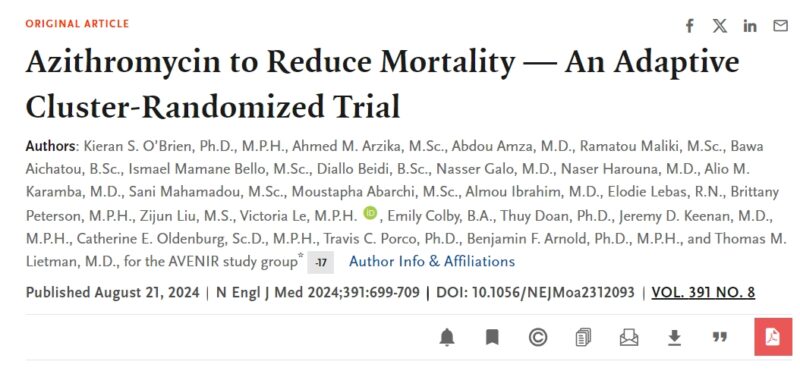
7. The list of risk factors for multiple sclerosis (MS) is growing: EBV, genetics, female gender, and now obesity This paper found that obesity is a female-specific risk factor for MS, which stimulates a subset of CD4+ T cells to provoke autoimmunity
Authors: Brendan Cordeiro, Jeeyoon Jennifer Ahn, Saurabh Gawde, Carmen Ucciferri, Nuria Alvarez-Sanchez, Xavier S. Revelo, Natalie Stickle, Kaylea Massey, David G. Brooks, Joel M. Guthridge, Gabriel Pardo, Daniel A. Winer, Robert C. Axtell, Shannon E. Dunn
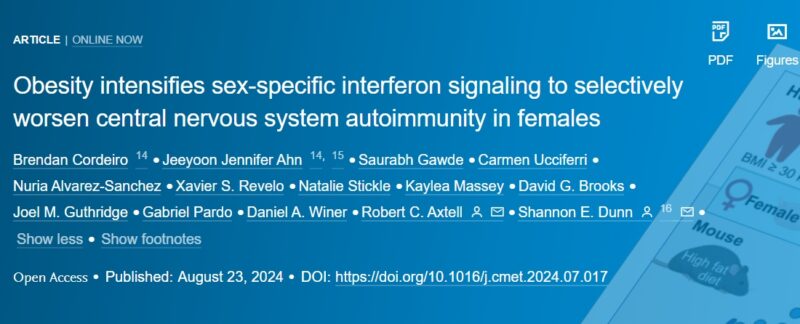
Source: Samuel Hume/X
More posts from Samuel Hume on oncodaily.com


